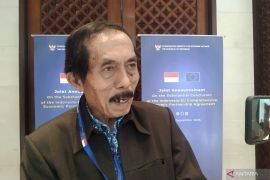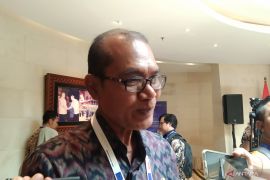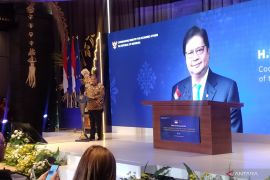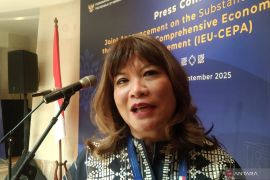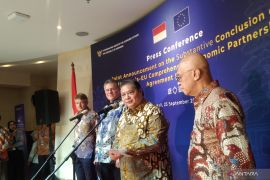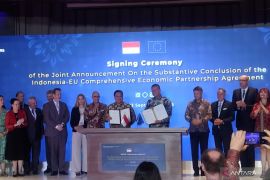Jakarta (Antara Bali) - Indonesia and Australia through the Indonesia-Australia Comprehensive Economic Partnership (IA-CEPA) talks have agreed to take advantage of opportunities in third countries and world markets.
Chairman of the Indonesian Negotiation Team Deddy Saleh said the two countries were committed to cooperating in various fields, in taking advantage of not only respective markets but also of the third countries and the world, normally called the principle of economic powerhouse.
"This principle will continue to be discussed and clarified later in various programs of cooperation under the Economic Cooperation Chapter," Deddy said, in a written statement received in Jakarta on Sunday.
Deddy said the two countries expressed the commitment at the seventh round of the IA-CEPA talks. At the talks, the two successfully completed negotiations with positive results, including issues related to economic cooperation (EC).
Both sides felt they were optimistic to complete negotiations by the end of 2017. One of the good developments of the talks is the agreement on elements that will serve as the basis for drafting economic cooperation.
"The EC is an integral part of the negotiations that distinguishes the IA-CEPA with the other free trade agreement (FTA)," said Deddy.
In the FTA, said Deddy, there was only agreement on market access, while in CEPA there are articles on Economic Cooperation which Indonesia can take positive benefits from the partner countries.
According to Deddy, in the 7th round of talks, the two countries had significant discussions, both on market access agreement and text agreement. To that end, the negotiations are expected to bring the two countries to a step closer towards completing talks.
"If in the previous round of talks, discussions were still marked with an exchange of views, the latest talks have developed into negotiations on agreement text and market access," said Deddy.
The main issue discussed at the IA-CEPA round of talks covered trade in goods, including rules of goods origin and customs procedures, trade facilitation and technical trade barriers.
It also included the question of service trade, including financial services, telecommunications, movement of persons and investment, electronic commerce, business competition, and regulation of the institutional framework.(*)



